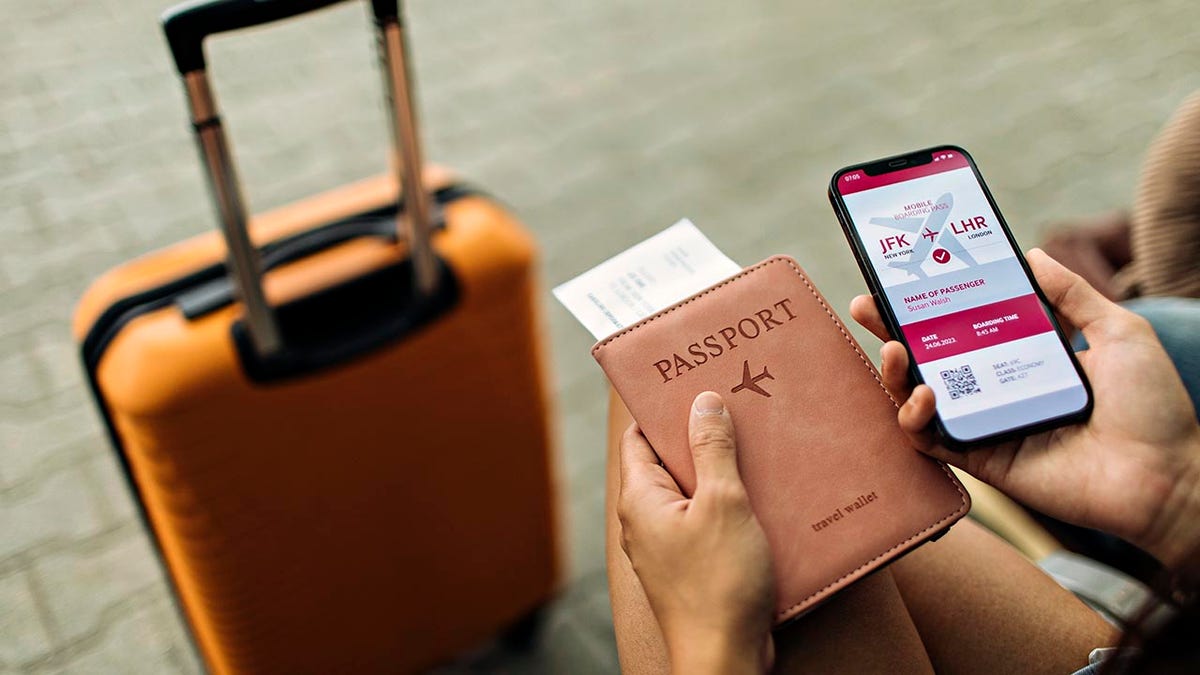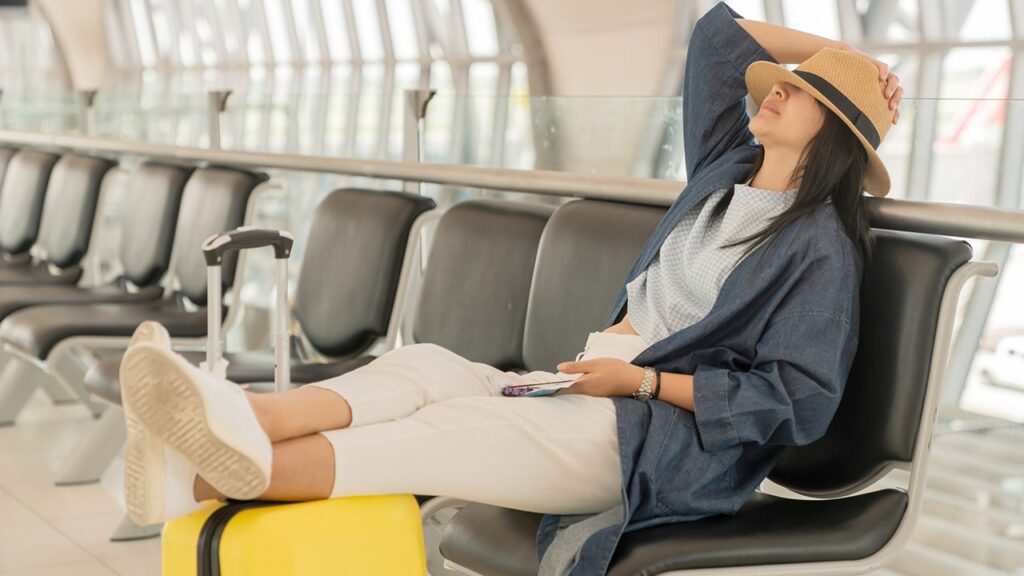NEWYou can now listen to Fox News articles!
As many travelers return from trips with souvenirs of their adventures, some also bring back an unwelcome case of jetlag.
Jetlag is a sleep disorder caused by traveling across different time zones in both international and domestic travel.
Flying can take a toll on the body, including dehydration, leg swelling and jetlag in many cases, according to Brunilda Nazario, M.D., WebMD’s chief physician editor of medical affairs.
“Jet lag, a very common symptom of longer travel, is much more than just several days of excessive sleepiness or insomnia,” said Nazario.
ALZHEIMER’S RISK COULD RISE WITH SPECIFIC SLEEP PATTERN, EXPERTS WARN
Long periods of sitting on a plane and lack of oxygen and decreased air pressure in the airplane cabin can contribute to the issue, according to Cleveland Clinic.
Jetlag disrupts our internal clock and its relationship with the outside world, said Nazario.
“In our external world, the cycle of daylight and darkness helps influence sleep patterns through melatonin. Jetlag also affects other circadian rhythms,” said Nazario.
“Our internal clock also helps regulate the release of daily or monthly hormones, like growth hormone and hormones of the menstrual cycle.”
Symptoms of jetlag include problems with focus, coordination and drowsiness.
The hormones also help regulate our appetite and digestive hormones, as well as the body’s temperature fluctuations, she said.
Flying from the West Coast to the East Coast can mess up the body’s biological internal clock, leading to a mismatch of various symptoms.
For more Lifestyle articles, visit foxnews.com/lifestyle
“Flying east requires you to advance your internal clock, while flying west means having to manipulate your internal clock to delay it,” said Nazario.
Symptoms of jetlag include problems with focus, coordination and drowsiness. If a person is consistently traveling across time zones, it can lead to longer-term health problems, even increasing the risk of diabetes, high blood pressure, mood disorders and obesity.

There are ways to prevent or lessen the impacts of jetlag, said Nazario.
“One common way to help prevent jetlag is to adjust your routine a few days before traveling by advancing or delaying your daily routine, depending on the direction of your travel,” she said.
Nazario suggested going to sleep earlier or later to help realign the timing of sleep and internal clocks.
While booking flights, opting for short stop-over connecting flights can help the body adjust to the changes you’ll experience at the destination, including sleep quality and alertness, she said.
Medications like over-the-counter sleep aids or prescription muscle relaxants can induce sleep, while caffeine can help combat daytime sleepiness.
One hack Nazario shared that may help some flight passengers sleep is melatonin.
“Melatonin has sleep-inducing effects. It’s known as the ‘darkness hormone’ because exposure to light shuts it down. Sleep masks can be a simple way to block light,” she said.
“The best sleep comes when the timing of your sleep is synced with the release of melatonin,” said Nazario. “Melatonin supplements can help reset your body clock.”
Anyone considering taking the supplements should first consult with a doctor or medical professional about approved products and proper dosing, experts advise. While melatonin is generally considered safe in the short term, it may interfere with certain medications, so caution is best.
Read the full article here

